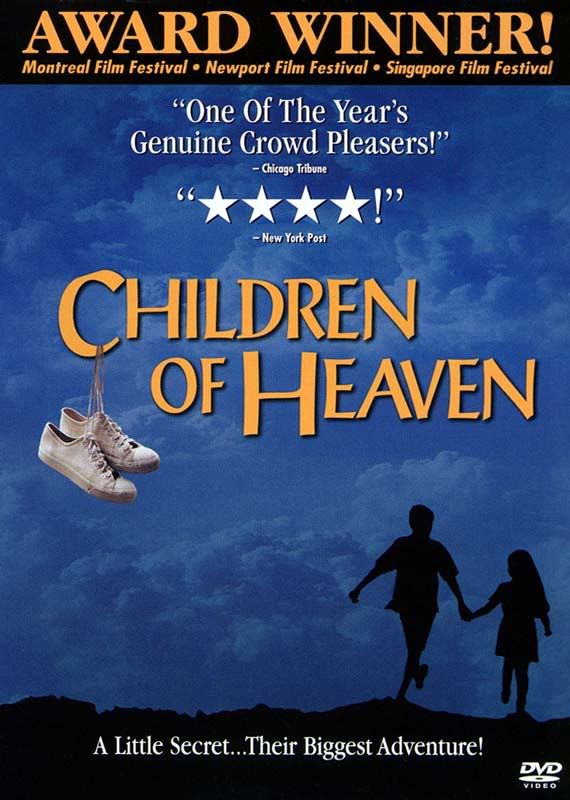 There's a palpable sense of conflict throughout the film. The visuals are breathtakingly beautiful and shots of Mohammad feeling his hands through the garden only accentuate the sense of contrast between the natural scenery and the impending misery in the lives of the characters.
There's a palpable sense of conflict throughout the film. The visuals are breathtakingly beautiful and shots of Mohammad feeling his hands through the garden only accentuate the sense of contrast between the natural scenery and the impending misery in the lives of the characters.Rang-e Khoda is the story of Mohammed, a blind boy who comes home from his school to spend his vacations with his widowed father, two sisters and granny. From the scene where a blind boy is beating his chest and letting out whistles to imitate a steam engine to the one in which Mohammed picks up a baby bird from the ground and climbs up the tree to put it back in its nest, director Majid Majidi's attention to detail stands out. The acting is inspiring and I have never seen an actor play the role of a blind with so much reality and restraint as the boy who plays Mohammed. From his twisted smile as he recognizes the chirping of a bird to the way he moves his hand over his sister's face to know how much she has changed, every action of his gives you a peep into the world of a blind but inquisitive boy.
On one hand, Mohammed's granny is the quintessential grandmother as she treats him with the kind of love and care only a grandparent can give. She's tender and delicate. She cant see Mohammed cry and tells him that she will die for him.
His father, on the other hand, is someone we don't like from the onset because he is keen to find out a way to let go of his blind son. Its only when he manages to send Mohammed to the blind carpenter and comes back to lament to his mother about how life has been hard on him and he has no one to look after him in his old age, that we get to feel his pain and his conflict.On one hand, Mohammed's granny is the quintessential grandmother as she treats him with the kind of love and care only a grandparent can give. She's tender and delicate. She cant see Mohammed cry and tells him that she will die for him.
Rang-e Khoda is a movie replete with very touching but very real portrayl of human emotions. The camera work is jaw dropping and will leave you with a dozen images long after you have watched the movie. It's the final image, however, which is heartrending in its simplicity and yet manages to say so much in but a few seconds, that will keep haunting you.
 Have you ever wished that you finished third in a race you won. Well, Ali, the central character in this film does!
Have you ever wished that you finished third in a race you won. Well, Ali, the central character in this film does!Bacheha-Ye aseman or Children Of Heaven has one of the most simplistic story lines that you will ever come across. A brother loses his siter's shoes and tries to find a way to get them back. How Majid Majidi managed to weave a story around this which kept me rivetted to the screen will remain a mystery to me.
Zahra and Ali are adorable as a brother and a sister. The sense of guilt which keeps eating into Ali because he has lost his sister's shoes and the small things he does like gifting a pen or a pencil, to sort of compensate for it, makes for an engrossing watch. Zahra's role is characterised by a sense of understanding beyond her years as she manages to keep the story of the missing shoe to herself. Empathising with each other and showing tremendous maturity in comprehending the situation they are in, Ali and Zahra's actions in the film are simple and real. And yet, seen through the artistic eyes of the director as Zahra goes chasing her brother's shoe which has fallen into the gutter; these very scenes turn into magical moments.
With the same eye for detail, the director takes us through the everyday life of an Iranian family and the bond which exists between the members. And even though not as astounding as in the other movie, with the last scene, director Majid Majidi yet again shows his panache for brilliant endings.
No comments:
Post a Comment